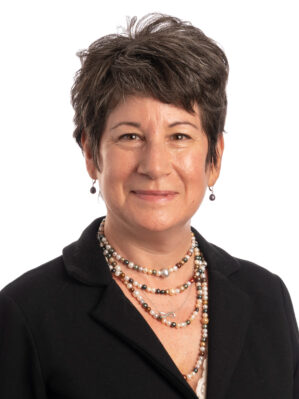
Positions
Assistant Professor, Department of Psychiatry, University of Arkansas for Medical Sciences
Research Health Scientist & Medical Anthropologist, Center for Mental Healthcare & Outcomes Research (CeMHOR), Central Arkansas Veterans Healthcare System
Co-Chair, Veterans Administration (VA) South Central Mental Illness Research, Education & Clinical Center (SC MIRECC) Community Advisory Board
Contact
UAMS e-mail: TAbraham@uams.edu
VA E-mail: Traci.Abraham@va.gov
Phone: 501-257-1744
Research Expertise
Dr. Abraham was trained as a medical anthropologist with specializations in barriers to care, women’s health, and immigrant health. Her research career began in the inner city of Hartford, CT, with project PHRESH.com. This multi-site study brought together a multi-disciplinary team of researchers from the University of Connecticut, Centers for Disease Control, and Family Planning Council to explore decision-making in sexual and romantic relationships among African-American and Puerto Rican emergent adults. She later completed ethnographic fieldwork in Andalusia, Spain regarding the cultural context of immigration and access to healthcare among immigrants from Morocco. She is currently a Research Health Investigator at the Center for Mental Healthcare & Outcomes Research, Central Arkansas Veterans Health Administration (CAVHS). Her work focuses broadly on behavioral health. She specializes in adapting interventions to enhance implementation and/or increase effectiveness and reducing health disparities by increasing access to patient-centered care. Her interest in participatory healthcare and research promoting participants as equal partners is evident in her role as Co-Chair of the VA South Central Mental Illness Research, Education & Clinical Center. She is also Assistant Professor in the Department of Psychiatry, University of Arkansas for Medical Sciences (UAMS), where she has been involved in the evaluation of state-level programs, including the Medicaid expansion in Arkansas. Throughout her career, Dr. Abraham has maintained an interest in using qualitative and mixed method research to improve access to care among vulnerable populations (immigrants, women, rural veterans).
Research interests: Barriers and facilitators to healthcare, Mental health and addiction treatment, Participatory healthcare, Implementation, Health equity, Underserved and vulnerable populations
Recent Publications
Current Publications (2011-2018)
- Abraham, T., Macauda, M., Erickson, P., and M. Singer (2011). “And Let me See Them Damn Papers!”: The role of STI/AIDS testing among African American and Puerto Rican young adults. AIDS & Behavior 15(7): 1359-1371.
- Abraham T. (2014). Using ethnography to inform policy and programs aimed at the integration of immigrants. Journal of International Migration and Integration 15(1): 117-134.
- Abraham T, Cheney AM, and G Curran (2015). A Bourdieusian analysis of U.S. military culture ground in the mental help-seeking literature. American Journal of Men’s Health. doi: 10.1177/1557988315596037
- Cheney AM, Abraham T, Sullivan S, Swaim D, Russell S, Waliski A, Lewis C, Hudson C, Candler B, Hall S, and J Hunt (2016). Using community advisory boards to build partnerships and develop peer-led services for rural student veterans. Progress in Community Health Partnerships: Research, Education, & Action 10(3): 355-364.
- Cucciare MA, Curran GM, Craske M, Abraham T, McCarthur MB, Marchant-Miros K, Lindsey J, Kauth MR, Landes S, and G Sullivan (2016). Assessing fidelity of Cognitive Behavioral Therapy in rural VA clinics: design of a randomized implementation-effectiveness (hybrid type III) trial. Implementation Science 11(65). doi:10.1186/s13012-016-0432-4
- Koenig CJ, Abraham TH, Zamora KA, Hill C, Kelly PA, Uddo M, Hamilton M, Pyne JM, and KH Seal. (2016). Pre-implementation strategies to adapt and implement a veteran peer coaching intervention to improve mental health treatment engagement among rural veterans. The Journal of Rural Health 32(4):418-428. doi: 10.1111/jrh.12201
- Abraham TH, Cheney AM, and G Curran (2017). A Bourdieusian analysis of U.S. military culture ground in the mental help-seeking literature. American Journal of Men’s Health. 11(5): 1358-1365. ePub 2015 Jul 29. doi: 10.1177/1557988315596037
- Medley J, Cheney AM, Abraham T, Grubbs K., Hunt J, Lu L, Fortney J., and G Curran. (2017). The impact of the psychological sequelae of trauma on veterans seeking higher education. Journal of Postsecondary Education and Disability 30(1): 83-96.
- Abraham T, Lewis E, Drummond K, Timko C, and M Cucciare (2017). Providers’ perceptions of barriers and facilitators to disclosure of alcohol use by women veterans. Primary Healthcare Research & Development 18(1):64-72. doi:10.1017/S14634236 16000384
- Purvis R, Abraham T, Long C, Stewart M, Warmack S, and P McElfish (2017). Qualitative study of participants’ perceptions and preferences regarding research dissemination. American Journal of Bioethics (AJOB): Empirical Bioethics 8(2): 69-74. doi: http://dx.doi.org/10.1080/23294515.2017.1310146
- Abraham T, Lewis E, and M Cucciare (2017). Providers’ perspectives on barriers and facilitators to connecting women Veterans to alcohol-related care from primary care. Military Medicine 182(9): e1888-e1894. doi: 10.7205/MILMED-D-17-00042
- Abraham TH, Koenig CJ, Zamora K, Hill C, Uddo M, Kelly AP, Hamilton MF, Curran GM, Pyne JM, and KH Seal (2017). Situating mental health work in place: Qualitative data from interviews with veterans in Southeastern Louisiana and Northern California. Health & Place 47: 63-70. doi: https://doi.org/10.1016/j.healthplace.2017.07.001
- Abraham TH, Wright P, White P, Booth BM, and MA Cucciare (2017). Feasibility and acceptability of shared decision-making to promote alcohol behavior change among women veterans: Results from focus groups. Journal of Addictive Diseases 36(4): 252-263.doi: http://dx.doi.org/10.1080/10550887.2017.1373318
- Abraham TH, Marchant-Miros K, McCarthur M, Craske M, Lindsey J, Curran G, and Cucciare M (2018). Adapting Coordinated Anxiety Learning and Management for Veterans Affairs Community-Based Outpatient Clinics: Iterative Approach. Journal of Medical Internet Research Mental Health. 2018 Aug 22;5(3):e10277
